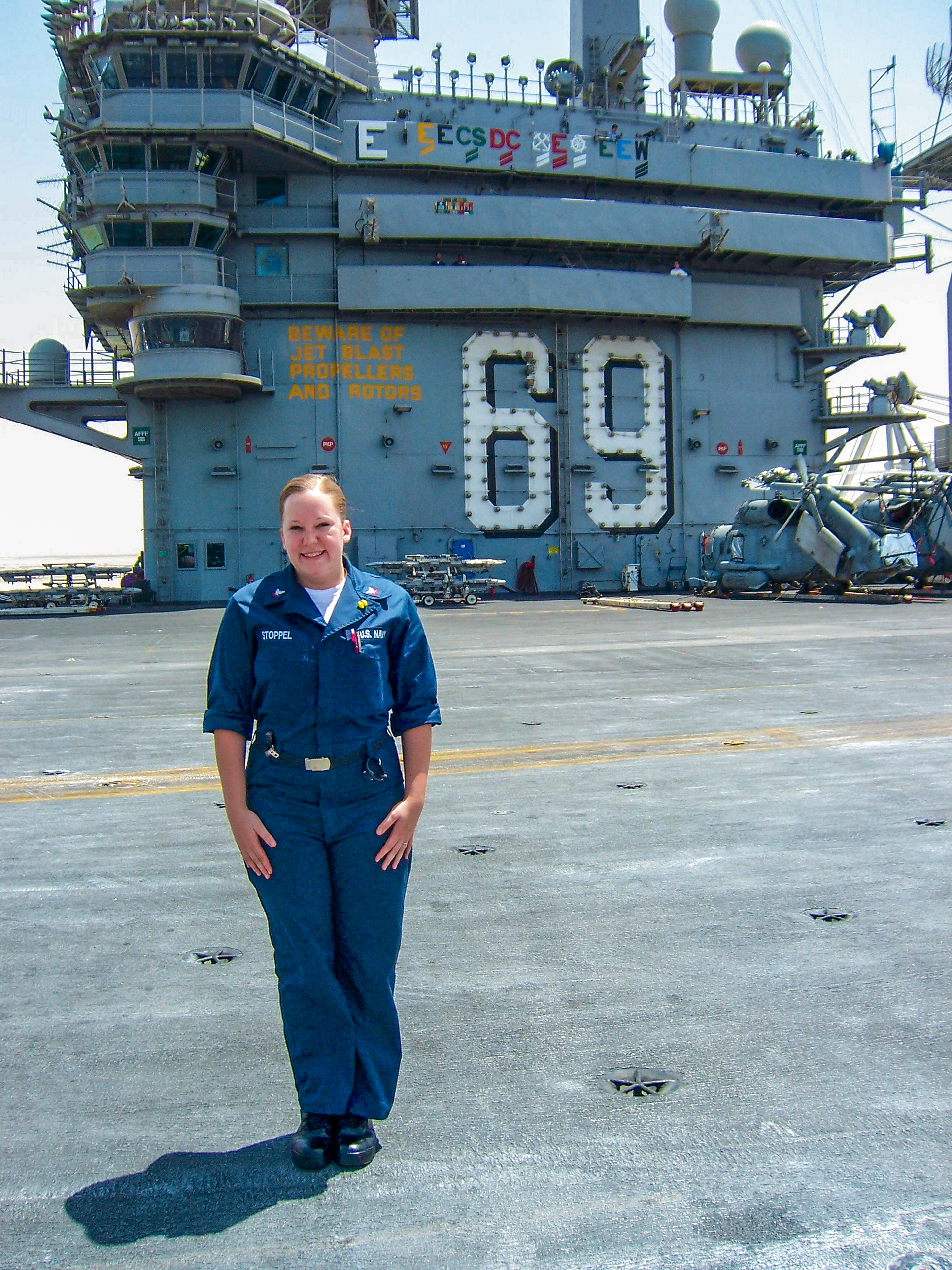Stephanie Sickler
Stephanie Sickler served in the U.S. Navy for four years as an engineering laboratory technician and nuclear plant operator onboard the nuclear-powered aircraft carrier USS Dwight D. Eisenhower, where she was responsible for maintaining the chemistry and radiation/contamination controls for one of the two nuclear power plants. During her time in this role, she served an eight-month deployment to the Persian Gulf during Operation Iraqi Freedom, where she earned recognition for her performance and multiple merit-based awards.
As one of very few women accepted into the nuclear program, Sickler distinguished herself as the class leader and was recognized for her academic achievement with the Commanding Officer’s Excellence Award.
Sickler is quick to point out that she struggled through training at first and came very close to not making the grade. “I was on the bottom,” she said, “but I came out on top.”
This became a recurring theme for Sickler, who repeatedly found herself dealing with personal challenges as she pursued her career. Despite the obstacles in her path, she has always found a way to excel.

After she was discharged, Sickler decided to complete a degree in chemistry so she could teach high school. That curriculum was progressing nicely when she started dabbling in political science courses and realized chemistry might not be her calling. She had become intrigued by water policy and wanted to pursue a career working with policymakers. She earned a political science degree and in her last semester—with a three-year-old and expecting a second child—she took another academic detour and began pursuing a law degree.
With her infant and toddler at her side and her husband deployed, Sickler entered law school. The situation was not ideal, and her first semester brought her close to failure. True to form, instead of throwing in the towel in the face of hardship, she threw herself into her work, assessing the situation, mapping a way forward, and digging in.
“Near failures have taught me that I have what it takes to succeed,” Sickler said. “I learned the value of resilience, self-reliance, versatility and perseverance. I don’t give up, and I won’t let anyone tell me that there is anything I can’t do.”
As her academic performance took off and Sickler settled into the course work, she began looking beyond the challenges of the curriculum and started finding ways to make an impact on the lives of other veterans. Recognizing that no programs existed to help incarcerated female veterans enter school or find jobs upon release, she and two other female veterans established a woman focused nonprofit organization to fill the void. WoVEN (Women Veterans Engaging the Nation) established access to counseling, guidance, instruction, and professional clothing for previously incarcerated women veterans in Southern California.
Sickler’s fortitude and determination did not go unnoticed by the faculty at California Western School of Law. Upon graduation, she was honored with the Irwin D. Miller Inspiration and Achievement Award, presented to a graduating law student who has overcome great adversity.
Sickler also received an offer to fill a position with the United States Navy Office of General Counsel (OGC), marking the first time in recent history that a graduating law student was offered such a position. After filling the role of legal technical specialist at the OGC for more than a year, Sickler moved back to her hometown of Thornton, Colorado, with her daughters, where they were rejoined by her husband. In early 2019, she was appointed one of five commissioners for the newly created Judicial Appointment and Retention Commission in Thornton.
When asked about her considerable achievements, Sickler is self-effacing in her response.
“I am motivated by the high expectations people have of me as a veteran,” she said, “and I work hard to inspire others to a higher standard through humility and a passionate commitment to serving the greater good.”
Perfection is the goal. “Individuals might not be perfect, but collectively, I am convinced that we can achieve perfect or near perfect performance,” Sickler said.
“Being a veteran comes with a great responsibility,” she said. “You aren’t wearing a uniform any longer, but you are still representing our country. There is still an expectation for excellence.”
—Judy Murray

